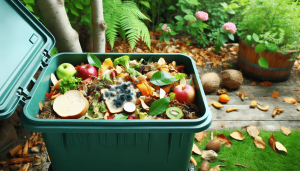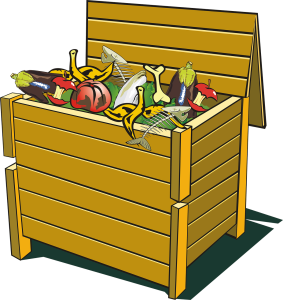We all love the idea of turning our kitchen scraps and yard waste into rich, dark compost that can fuel our gardens. In the article “How Long Does It Take For Compost To Be Ready?”, we explore the timeline of the composting process, from the initial preparation of materials to the moment we can finally use the rich, finished product. By understanding the factors that influence decomposition, such as temperature, moisture, and the types of materials we use, we can determine just how long we need to wait before our compost is ready to nourish our plants. Let’s delve into these key aspects and learn how to speed up the process while ensuring that our compost is of the highest quality. How long does it take for compost to be ready?
This is a question many of us ask when we first dive into the world of composting. Whether we’re avid gardeners, sustainability enthusiasts, or just looking to reduce our household waste, understanding the timeline for compost readiness can help set our expectations and guide our efforts. Dive in with us as we break down the factors and processes involved to get that rich, dark compost we all desire.
What is Compost and Why is it Important?
Compost is an organic matter that has decomposed to the point where it can be used as a soil conditioner. Imagine your kitchen scraps and yard waste turning into something as valuable as gold for your garden. That’s compost! The importance of compost cannot be overstated—it enriches soil, helps retain moisture, suppresses plant diseases, and can reduce the need for chemical fertilizers. Plus, it’s a great way to recycle organic waste.
The Composting Process
Before we discuss timelines, let’s understand the composting process. Composting is essentially the natural decomposition of organic material. Microorganisms, such as bacteria and fungi, break down this material, and they need the right environment to thrive.
The Four Stages of Composting
- Mesophilic Stage: This is the initial phase where the temperature is moderate, and simple organisms start breaking down the sugars and easy-to-digest compounds.
- Thermophilic Stage: During this phase, temperatures rise significantly. More complex materials are broken down by heat-loving microorganisms which can survive in this hot environment.
- Cooling Stage: The temperature starts to drop as the decomposition slows down. Different organisms take over and continue to process the material.
- Maturation Stage: This is where the compost cools down and stabilizes. It may sit for a bit while the final breakdown occurs, resulting in fully mature compost.
Each of these stages is crucial to producing high-quality compost. Now, let’s delve into the factors that influence how long it takes to complete these stages.

Factors Affecting Composting Time
Several factors play a significant role in determining how quickly compost will be ready to use. Understanding these can help us optimize our composting efforts.
1. Carbon to Nitrogen Ratio (C:N Ratio)
The carbon to nitrogen ratio is essential for the composting process. Ideally, the ratio should be around 30:1. Carbon materials (browns) include leaves, straw, and paper, while nitrogen materials (greens) include kitchen scraps and grass clippings. Too much carbon can slow down the process, while too much nitrogen can create a smelly pile.
2. Particle Size
Materials that are chopped or shredded into smaller pieces will break down faster. This increased surface area allows microorganisms to access and decompose the materials more efficiently. Imagine a carrot – a whole carrot takes longer to rot compared to carrot shavings.
3. Moisture Levels
Compost should be kept moist, like a damp sponge. Too dry, and the microorganisms can’t thrive. Too wet, and the pile can become anaerobic, leading to a foul smell. Using a moisture meter can help maintain the optimal moisture content.
4. Temperature
Temperature plays a critical role, especially during the thermophilic stage. A compost pile that heats up to 130-160°F (55-70°C) will decompose faster due to the activity of thermophilic microorganisms. Turning the pile and maintaining an ideal balance of materials can help maintain this temperature.
5. Aeration
Oxygen is essential for aerobic decomposition. Regularly turning the compost pile helps introduce oxygen and accelerate the process. Piles that are not turned or aerated properly can become slow and may start to smell bad.
6. Compost Bin Type
The type of compost bin or pile also affects how quickly compost is ready. Enclosed bins may retain heat and moisture better, speeding up decomposition. Tumblers can make aeration easier, while open piles may require more manual effort to manage.
7. Seasonal Factors
Weather and seasons can affect composting times. Warmer weather generally speeds up the process, while cold winter months can slow it down. Some people use insulated bins or indoor composting methods to mitigate seasonal impacts.
Typical Timeframes for Composting
Based on the factors above, composting can take anywhere from a few weeks to a couple of years. Let’s break it down a bit more for clarity:
Hot Composting
Fast but labor-intensive
Hot composting involves maintaining high temperatures, regular turning, and an optimal balance of materials. Under ideal conditions, it can produce compost in as little as 4-8 weeks.
Typical Timeline:
| Task | Timeframe |
|---|---|
| Initial Setup | 1-2 weeks |
| Active Composting | 3-6 weeks |
| Maturation | 1-2 weeks |
Cold Composting
Slower but less effort
Cold composting requires less effort and is more hands-off. It involves adding materials to the pile as they become available. This method will take longer, generally between 6 months to 2 years.
Typical Timeline:
| Task | Timeframe |
|---|---|
| Initial Setup | 1 week |
| Decomposition | 6 months-2 years |
| Maturation | Additional 1-3 months |
Vermicomposting
Efficient and space-saving
This involves using worms to break down organic material rapidly. Under the right conditions, vermicomposting can produce usable compost within 2-3 months.
Typical Timeline:
| Task | Timeframe |
|---|---|
| Initial Setup | 1-2 weeks |
| Active Composting | 2-3 months |
| Maturation | 2-4 weeks |
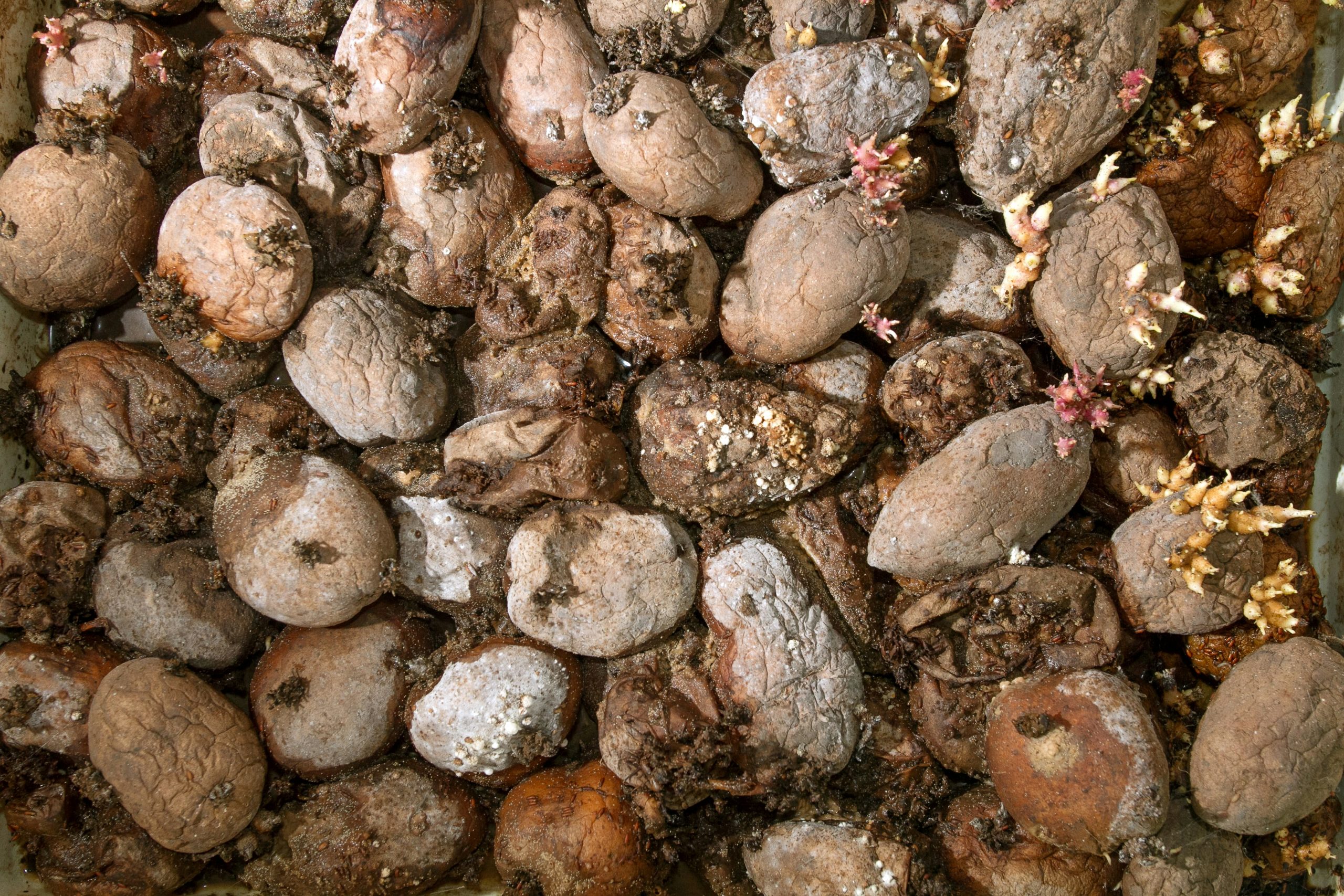
Signs That Compost is Ready
So how do we know when our compost is ready? There are a few key indicators:
1. Dark, Rich Color
Mature compost is dark brown or black, resembling good-quality soil.
2. Earthy Smell
Finished compost should have a pleasant, earthy smell, without any traces of the original materials’ odors.
3. Crumbly Texture
The compost should be crumbly and light, much like rich garden soil.
4. No Recognizable Pieces
You shouldn’t be able to identify the individual pieces of organic material that went into the compost.
5. Stable Temperature
The compost pile will return to ambient temperature and stay there, indicating that the active decomposition is complete.
How to Speed Up the Composting Process
If waiting isn’t our thing, or we simply need compost sooner, there are ways to speed up the process.
Accelerators and Activators
Compost activators or starters can help jumpstart the composting process by adding beneficial microorganisms.
Pre-Composting Techniques
Chopping or shredding materials before adding them to the compost heap can significantly reduce decomposition time.
Regular Turning
Turning the compost pile regularly adds oxygen and redistributes moist materials, speeding up the decomposition process.
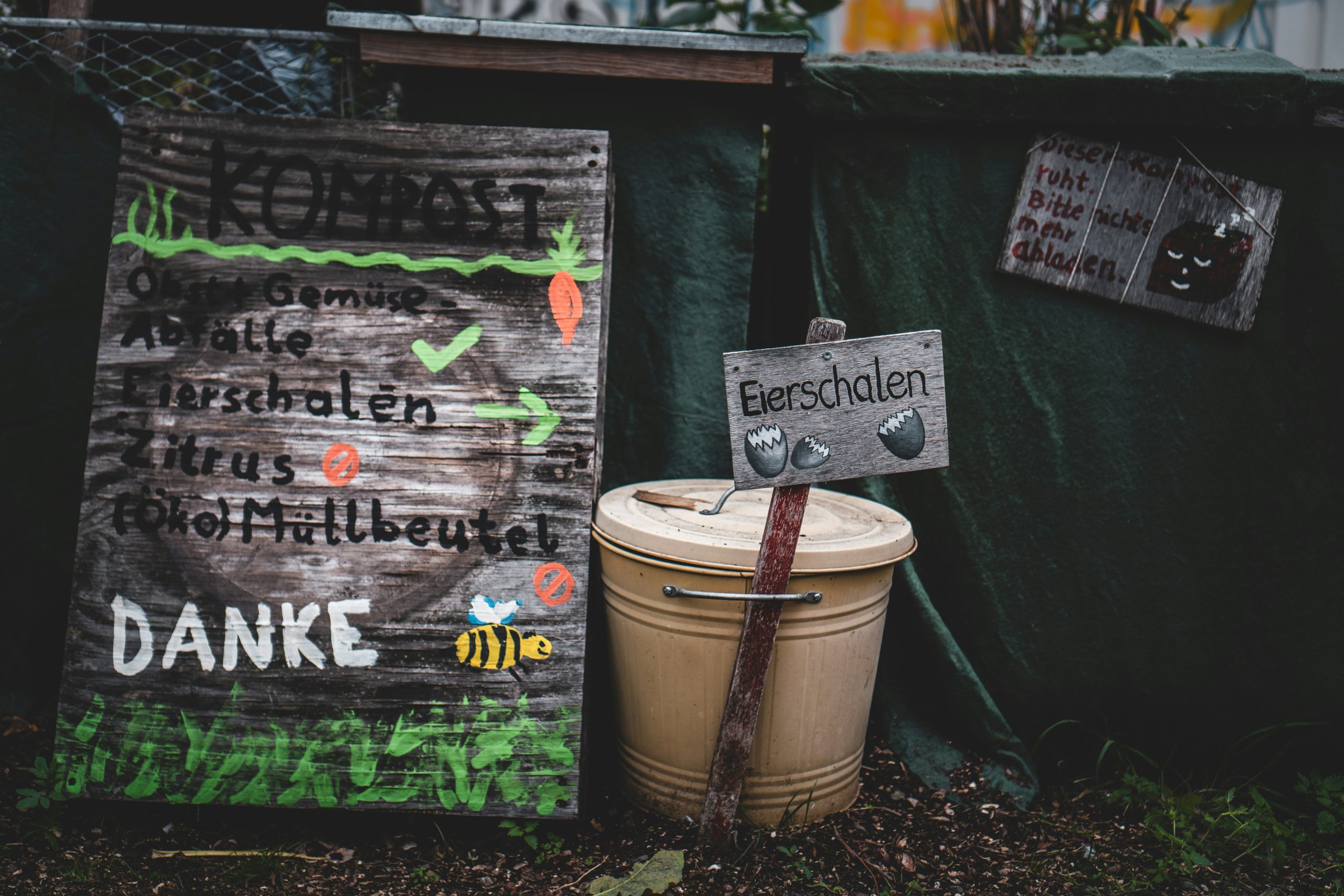
Common Composting Mistakes (and How to Avoid Them)
Even the best of us can make mistakes in the composting process. Here are some common pitfalls and how to avoid them:
Too Much of One Material
A balanced mix of greens and browns is crucial. Too much of one type can upset the composting process. Always aim for a good blend to maintain that 30:1 carbon to nitrogen ratio.
Pile Too Wet or Too Dry
Check moisture levels regularly. If it’s too wet, turn the pile and add dry browns. If it’s too dry, lightly water and turn the compost.
Not Enough Aeration
Without sufficient oxygen, composting can slow down. Turn the pile regularly to keep it aerated.
Adding Wrong Materials
Avoid adding meat, dairy, oily foods, and diseased plants as they can attract pests or introduce pathogens. Stick to appropriate kitchen scraps, yard waste, and other safe organic materials.
Benefits of Mature Compost
Once our compost is ready, the benefits are plentiful and rewarding.
Soil Enrichment
Compost improves soil structure, promotes healthy root systems, and increases nutrient content.
Water Retention
Compost helps soil retain moisture, reducing the frequency of watering and conserving water.
Waste Reduction
By composting, we significantly reduce our household waste, diverting it from landfills, which is beneficial for the environment.
Plant Health
Using compost can make our plants more resistant to diseases and pests, leading to healthier, more vigorous growth.
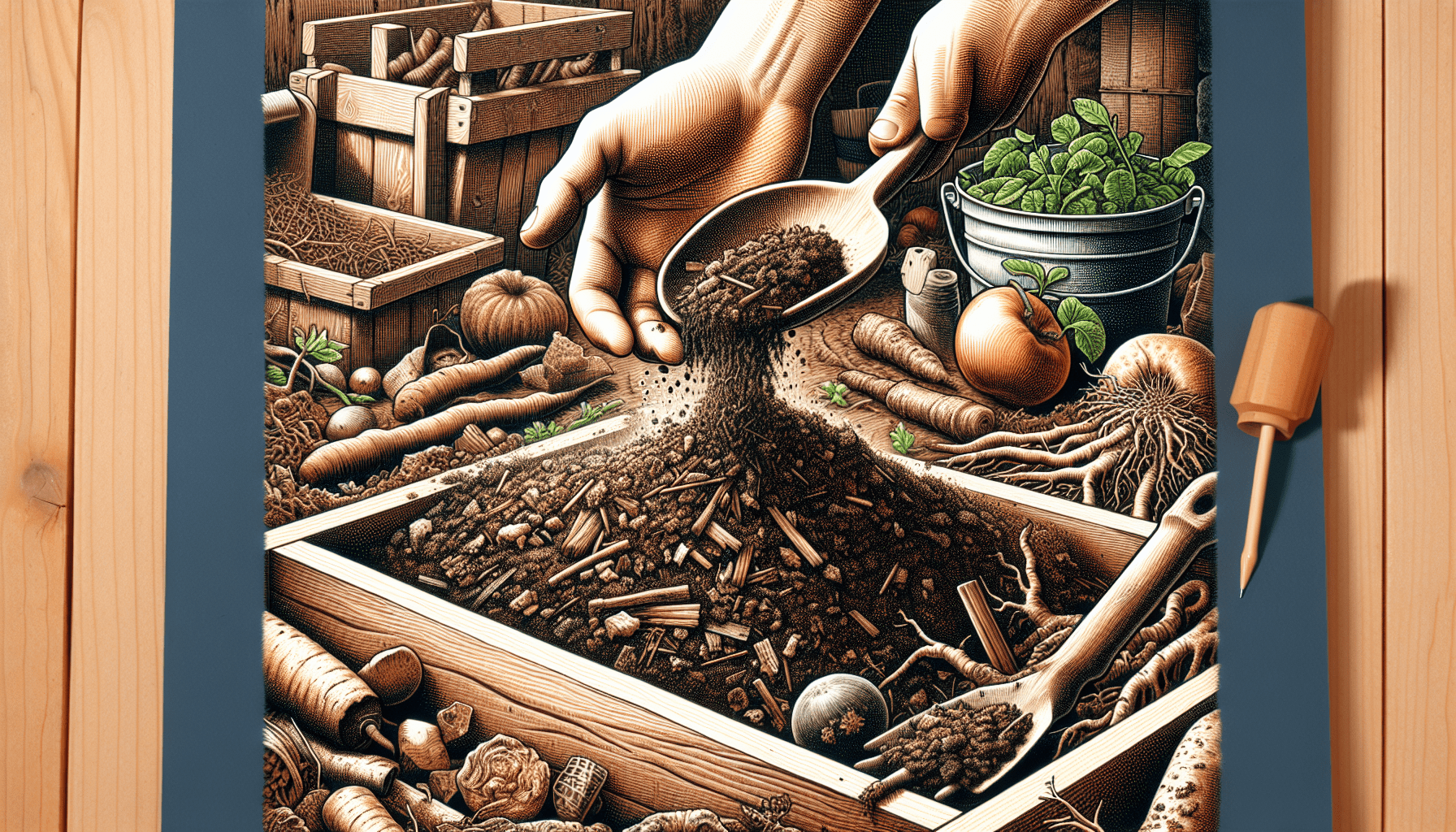
Different Methods of Composting
We’ve touched on a few methods already, but let’s delve deeper into various composting techniques that might work for different needs.
Backyard Composting
This is the most traditional method. It involves creating a compost pile or bin in our backyard. It can be done using open piles, enclosed bins, or homemade structures.
Vermicomposting
Ideal for small spaces like apartments, this method uses worms to break down food scraps quickly and efficiently. Worm bins can be kept indoors or outdoors.
Trench Composting
We can dig a trench in our garden and fill it with organic material, then cover it with soil. Over time, the material will decompose directly in the soil, enriching it.
Bokashi Composting
This method involves fermenting organic waste using a special bran inoculated with beneficial microorganisms. It’s a great way to compost meat and dairy, which are typically avoided in traditional composting.
Commercial Composting
For those who don’t have the space, many municipalities offer curbside compost collection. We can also take our food scraps to local composting facilities.
FAQs About Composting
We know composting can bring up a lot of questions. Here are a few commonly asked ones:
Can we compost in winter?
Yes, composting can continue during winter, though the process will slow down. Insulated bins can help maintain temperatures.
Can we compost paper and cardboard?
Yes, as long as it’s not heavily coated with plastic or ink. Shredded paper and cardboard add valuable carbon to the compost.
Can we use compost that’s not fully decomposed?
Partially decomposed compost can be used as mulch, but for maximum benefits, it’s best to wait until it’s fully mature.
What should we do if our compost smells bad?
Bad odors usually indicate a lack of oxygen, too much nitrogen, or excessive moisture. Turn the pile and add more browns to balance it out.
Conclusion
Composting is a fantastic way to recycle organic waste and nourish our gardens. While the time it takes for compost to be ready can vary—from a few weeks to a couple of years—understanding the influencing factors and methods can help us manage our composting efforts effectively. By keeping an eye on the carbon to nitrogen ratio, particle size, moisture level, and aeration, we can ensure a smooth and efficient composting process. The result is rich, dark compost that will enrich our soil, retain moisture, reduce waste, and promote plant health. Happy composting, everyone!

